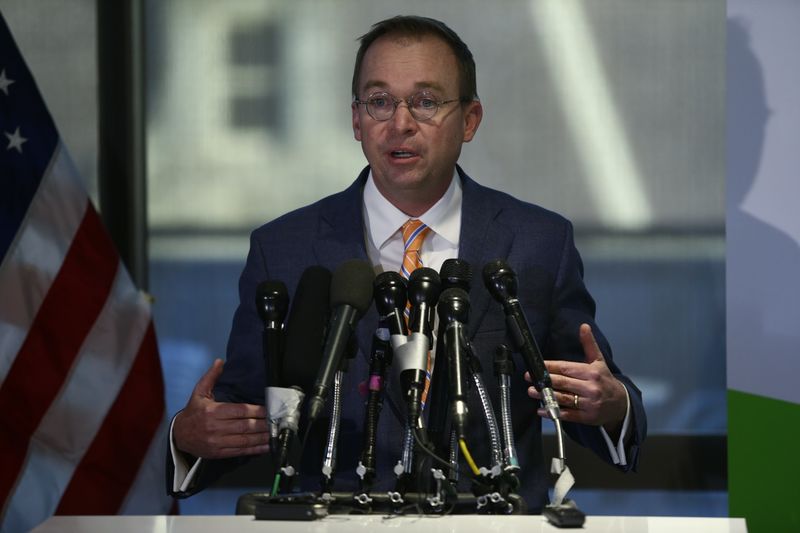By Patrick Rucker and Michelle Price
WASHINGTON (Reuters) - A U.S. District Court judge on Tuesday sided with President Donald Trump in a legal battle over who should be in charge of the U.S. consumer finance watchdog, allowing White House budget director Mick Mulvaney to serve as acting head.
Judge Timothy Kelly ruled against Leandra English, deputy director of the Consumer Financial Protection Bureau (CFPB) who claimed to be its rightful interim director. He denied her request for a temporary restraining order to block Mulvaney's appointment.
Kelly said the 1998 Federal Vacancies Act gives the White House the power to say who is in charge at the watchdog.
"Undeniably, the CFPB was intended to be independent, but it is part of the executive branch,” Kelly, a Trump appointee, said.
The decision was a blow for Democrats and consumer advocacy groups who had rallied to English's cause.
CFPB Director Richard Cordray, a Democrat appointed by the Obama administration, resigned on Friday and named English to lead the agency until a new director was confirmed by the U.S. Senate, a process that could take months.
Hours later, Trump said Mulvaney would lead the agency on an interim basis, sparking an unprecedented showdown.
The CFPB was created to crack down on predatory financial practices after the 2007-2009 financial crisis, but it is reviled by Republicans who say it is too powerful.
Speaking to reporters outside the court in Washington, English's lawyer, Deepak Gupta, said he would take the case to a higher court.
"I think whatever happens here there is going to be an appeal," he said.
The White House applauded the ruling. "It’s time for the Democrats to stop enabling this brazen political stunt by a rogue employee and allow Acting Director Mulvaney to continue the Bureau’s smooth transition into an agency that truly serves to help consumers,” Deputy Press Secretary Raj Shah said.
Trump has long sought to weaken or abolish the 1,600-employee agency, saying too many regulations are suffocating lending. Mulvaney sought to dismantle the CFPB when he served as a Republican in the U.S. House of Representatives.

Democrats say the agency needs to oversee consumer financial products such as mortgages and have power over large non-bank financial companies to protect borrowers.